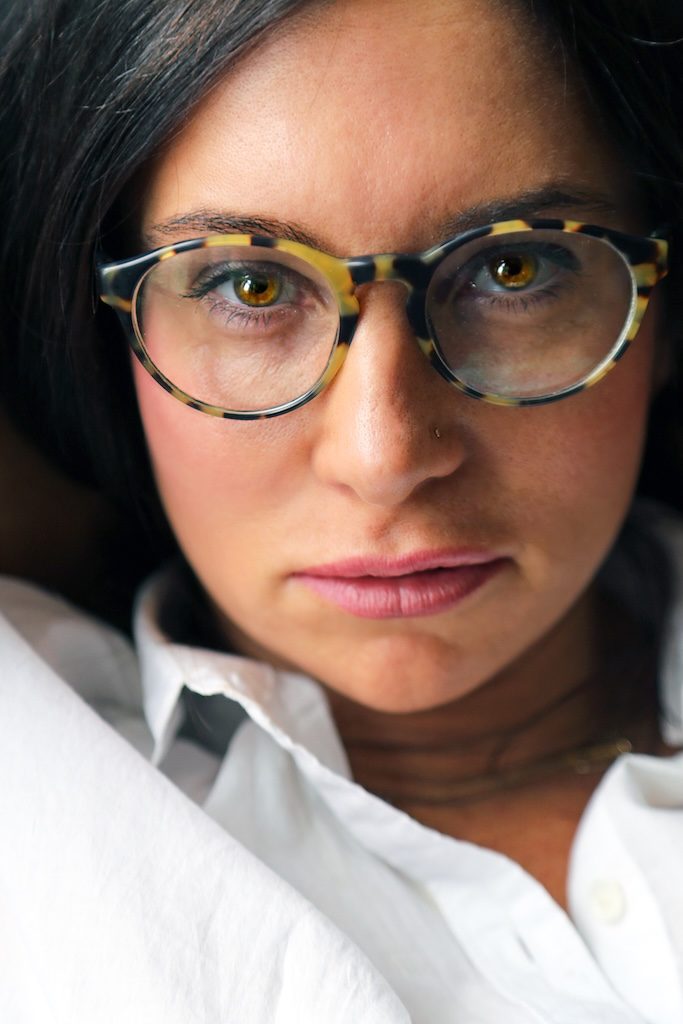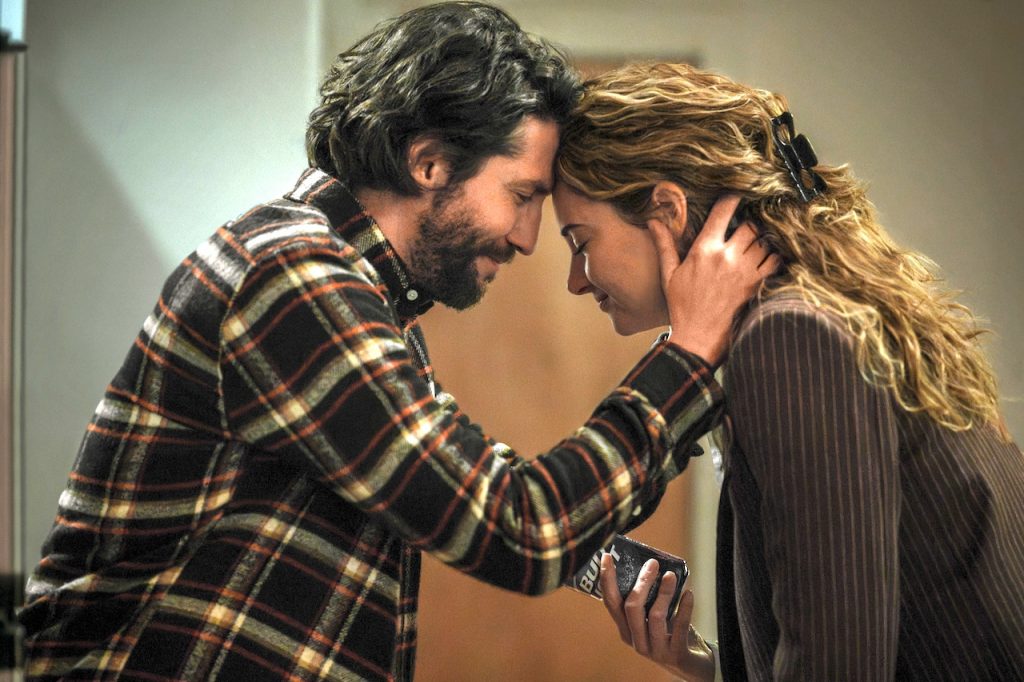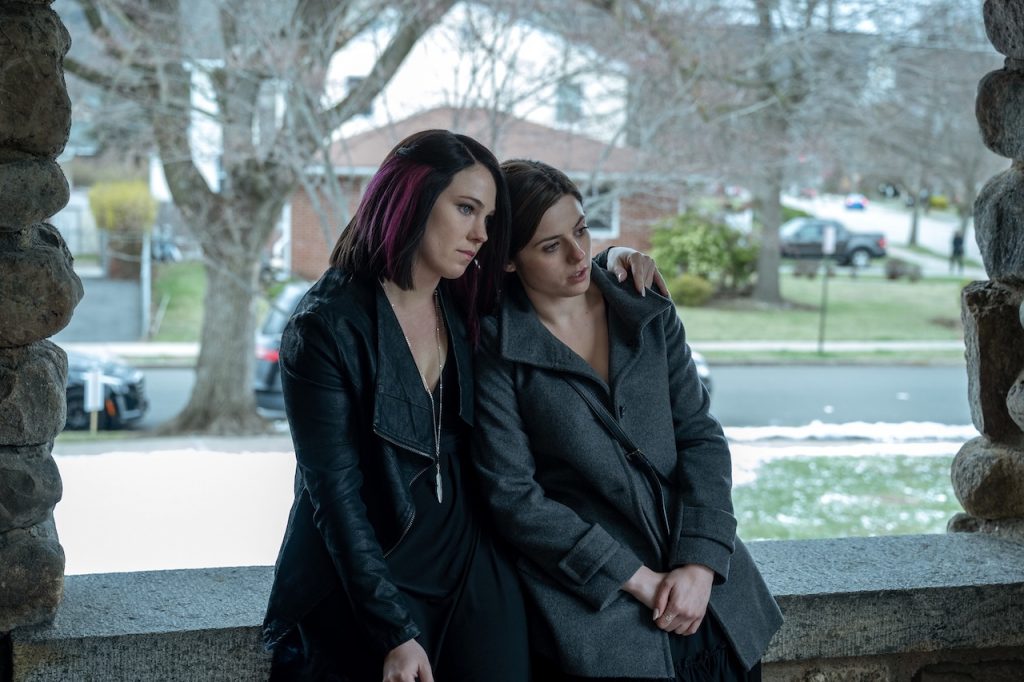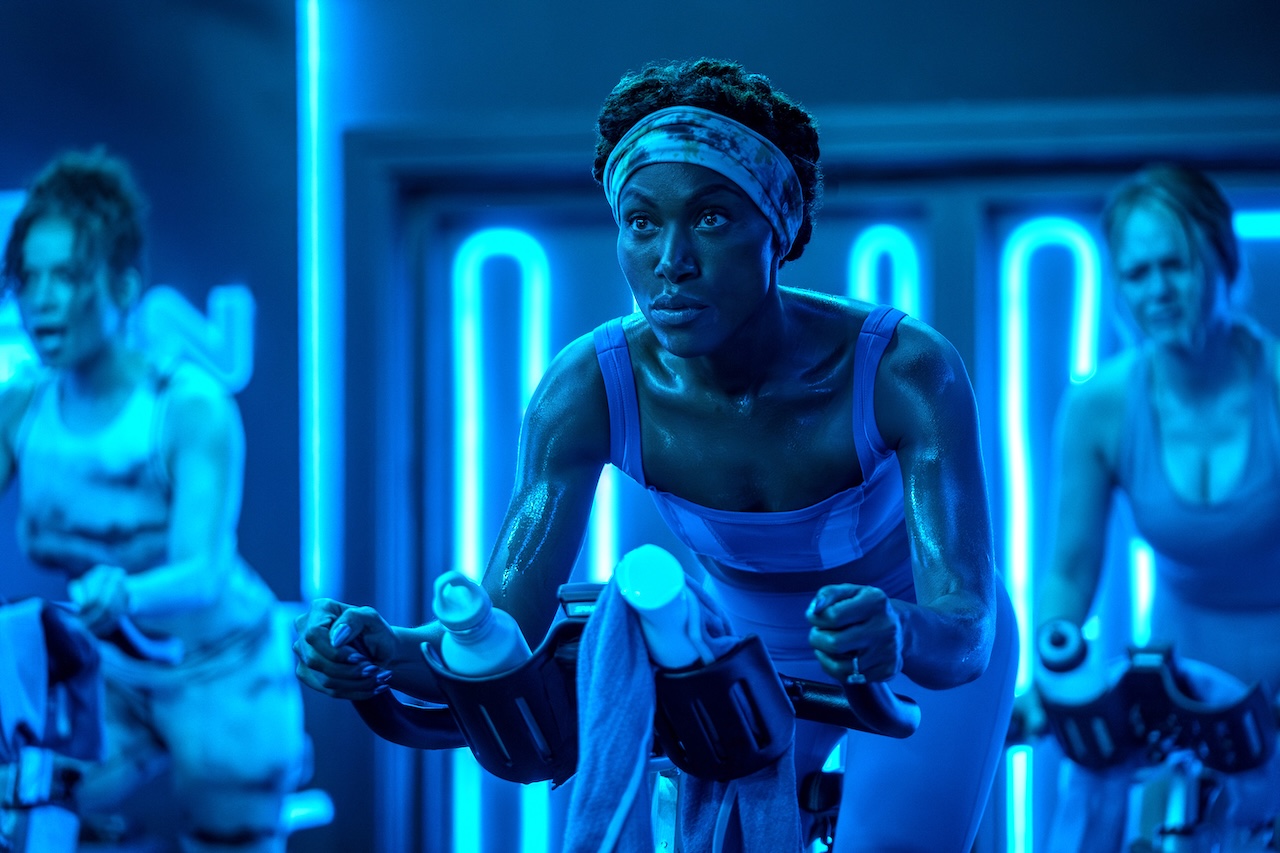It is the dialogue that will seemingly never not be controversial: female desire and what rights a woman has over her body.
Enter journalist-turned author-turned screenwriter Lisa Taddeo who dives headfirst into the topics that others tiptoe around, taking an honest and unapologetic look at some of the most fundamental human needs and wants one could ever express… or suppress.
Her 2020 non-fiction book Three Women was based on almost a decade of personal research and chronicled her journey across the United States getting women to open up to her about their deepest and darkest secrets. There’s Lina, a mother in Indiana whose loveless marriage drives her to social media to reconnect with “the one that got away”. Sloane and her husband have an open marriage – she chooses who to bring into their bedroom; if he agrees, he gets to watch. Finally there is young Maggie, who looks back on her high school years and the teacher who groomed her and drew her in, exploiting both his power and her innocence, catapulting her into adulthood before it was her time.

Lisa Taddeo. Photo by Jackson Waite
Following a tumultuous ride to the screen, the number one bestseller for the New York Times and Sunday Times is now a limited series on Starz, created and executive produced by Taddeo and starring Betty Gilpin as Lina, DeWanda Wise as Sloane and Gabrielle Creevy as Maggie. Tying together all of these ordinary women with their extraordinary stories is Gia (a version of Taddeo, played by Shailene Woodley), who drives across the country and documents their experiences with raw sincerity and empathy… all the while figuring out her own desires in life. Her purpose? To give them a voice to show them (and all other women) they just might not be alone.
Tell me about the journey to getting this series made.
When the book first came out, it hit number one on the New York Times bestseller list. Hollywood swarmed with all of its “Hollywood-ness” …a lot of different studios and streamers were all bidding. Lots of people were telling me why they were the right ones to produce it, and there was just so much of that courting.
Then you get to the point when decisions are being made and new people come in and all of that excitement turns into the exact opposite. It’s silence. The shift was just so surprising and interesting, and it was a curiosity to me; to be honest, to witness that on the human scale. The thing with movies and television shows is that, when the gears are going to get it in motion, it’s hundreds of people and tons of money and all these resources… and then when that stops, it’s just this quiet. You think, “How can something that meant so much to so many people be… removed?”
It was obviously devastating. One of the things about my book was that I felt like I could tell people about what these women were experiencing; I was able to communicate something, and we all got together – all the actors, the crew and everybody – to retell that in a new way. And the idea that someone else could silence it was a really sobering thing after all the effort and the money that went into it. It was a great experiment to look at the cross section of humanity.
But then Starz picked up the show pretty quickly and I genuinely feel that this was always the home for it. I really do mean that as someone who previously didn’t think that different streamers and studios meant much. I feel like it’s come to mean a lot in the past year, where something is and who knows their audience and understands them, and also cares about them.
Is the topic of female desire still taboo? Did you encounter challenges along the way?
Absolutely. The number one aspect is the women wanting more than they should have. “She already has a nice house and a nice car, and two kids. So why does she also want this?”
The idea that “we have to give her another reason to want this” is still so much a part of the fabric of everything, whether it’s in books or in our own interactions in our friend groups. It’s still very much something that we have to deal with.

Jack (John Patrick Amedori) and Gia (Shailene Woodley) Photo courtesy of Starz
The lines between one’s identity as a woman and her identity as a mother can often be blurred and the character of Lina seems to dive into that. Can you comment on this theme?
I think there’s so much talk about one’s identity as a mother and identity as a woman because there’s so much shame around it and so little truth. I think we’re always afraid of what the right side to be on is, depending on, say, where the country is or where our own bubbles lie. I think that it’s the fact that things can change by the month based on what’s been trending. The whole notion of social media creating hierarchies is so powerful, and frankly frightening.
I think what I wanted to explore about identity as a mother and identity as a woman was how nuanced it is. It’s very easy to think that you’re either a woman who has all these feelings and desires or a mom who doesn’t… and you get to decide on any day which one you’re going to be. But obviously the reality is that you are both at once. I think that that’s a duality we can easily forget about because there’s such a need for black and white. We want things to be binary and it’s something that I find wildly interesting.
Tell me about the three women, how you met them and learned their stories, putting them first to the page, and now on the screen.
There’s Lina in Indiana, Maggie in North Dakota and Sloane who, in the show, is in Martha’s Vineyard. It’s very difficult to get people to be super honest about desire, obviously, and it was really hard to find people who were going to be honest with a relative stranger, especially without hope of remuneration or anything else. They were the ones who gave me the most and who wanted to talk the most, so that’s how I found them.
In terms of adapting the book for the screen, we had a very lovely writers’ room that included myself, my husband Jackson Waite, Chisa Hutchinson, Tori Sampson and Laura Eason. There were challenges and one of the main things that’s different from the book is the character of Gia. She’s a sort of amalgamation of me and Shailene Woodley, and one of the great things about creating that character is that we decided she wouldn’t be me. Nobody knows who I am so I’m just the sort of entrance into the store. Writing her for the screen was the difference between me being a neurotic mess and this character having a few less neuroses. I thought “Oh wow, she’s cooler than me.”
The other main difference is that the Sloane I wrote about in the book is a white woman and the Sloane that’s in the show is played by DeWanda Wise, a black woman. The Sloane in the show was another woman I had spoken with who had a very similar lifestyle to the Sloane in the book. But after six months, she didn’t want to be on the record anymore because she had found someone who she didn’t want to know about her past. But it was a really fun and beautiful experience to create this new Sloane, a black woman written by Chisa Hutchinson and Tori Sampson who are brilliant playwrights and TV writers.
So, I say there were challenges because there were a lot of things to be concerned about, but they were fun challenges to navigate and learn so much from. Having two people build a new character on top of a pre-existing one was something I’d never experienced before and it was really cool.

Billie (Jessie Gabor) and Maggie (Gabrielle Creevy) Photo courtesy of Starz
Is telling your own story more difficult than telling someone else’s?
I don’t find it difficult to tell my story. I’m very open and honest about things, especially since one of the occupational hazards of asking people about their deepest, darkest secrets is that you kind of have to tell your own too if you want them to talk. If you want them to talk back to you, and also if you just want to be a nice human, I feel like it’s a way to do that, so I’m quite comfortable with it.
What was more challenging for me – and I think this is something we all struggle with as women, and people in general – is that I didn’t want to feel like I really wanted my story to be up there with the others. We were using my story to meet the others, to be the actual connective tissue between the other women, and I realized it was the right thing for the show. But to say, “Oh, me too”… I definitely struggled with that.
You address how women have such power within their own relationships, to hold each other up and tear each other down in unique ways. Can you speak to how you explore that in the series?
I think we’ve almost been bred to bite each other’s ankles. We’re kind of all our storybooks, at least for my generation. I think it’s different from my daughter’s. But with my generation, it was always this idea of “what can the girl do to get the prince to love her.”
Like the story of The Princess and The Pea. We’re deciding whether or not this woman was princess material by the fact that she feels a pea in her mattress. If she feels the pea, that means that she’s more princess-like, and that’s the kind of woman that we are supposed to be. So for me, yes, I feel like we have these societal morays that tell us that women should be a certain way. That there’s a paucity of partners and we need to harm each other until we’ve got what we want. I think that is the standard that gets taught to us by our very art, and so in my art, I like looking at that honestly and being hyper aware of it so that we can perhaps stop.
How did your career in journalism prepare you for screenwriting?
I don’t entirely know! But I’m very good at moving along from something journalistically if I don’t have the information yet. If I haven’t done the interview yet, I’ll leave it as a giant TK and then move on to the next piece. So I’ll do that with screenwriting too. I’ll write the scenes that I understand and then come back to it. I think that’s one thing that’s definitely carried over from writing stories and articles for weeklies and monthlies and that has been very helpful for writing scripts.

